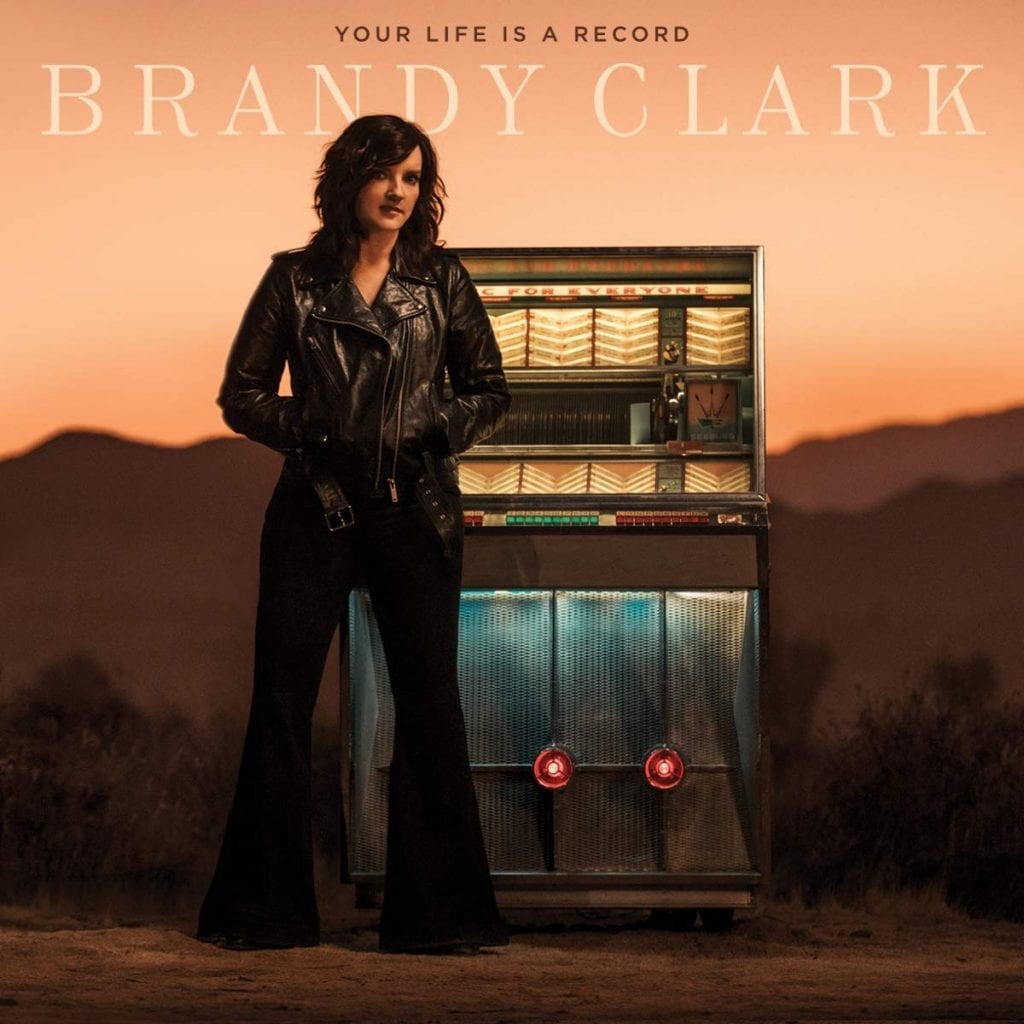Real Life Populates Songs on Brandy Clark’s ‘Your Life Is a Record’

Brandy Clark’s songs touch souls and hearts because she names so perfectly the ragged ways we live our lives: falling in and out of love, living behind a facade to cover our shortcomings, trying to laugh off the devastation of loss, facing the mistakes of the past and embracing the uncertainties of the future. Clark peers into the corners of our lives and names the foibles and shortcomings we sometimes can’t see or are afraid to name ourselves.
Your Life Is a Record, her third album, opens with the somber “I’ll Be the Sad Song,” a reflection on wholeness and the parts that make up the whole, as well as a meditation on the small glimmers of hope that shine through regret and loss. The song opens with a single extended deep note that spirals higher and higher orchestrally. The sound itself mimics the arc of life unfolding like the arc of an album: “If your life is a record / People and places are the songs / They’ll be slow and they’ll be fast ones / Looking forward and looking backward / On that tiny two-lane / Town that you call home / They’ll all make sense if they’re together / If your life is a record.”
“Long Walk” kicks off with Jedd Hughes’ scampering guitar licks, heading into a Lesley Gore-like chorus. The singer takes joyful aim at the middle-age meddling neighbor who sits in a Walmart lawn chair throwing stones at everyone on the block. With good Southern neighborliness, the singer counsels this busybody: “Take a long walk off a real short pier / Take a cinder block with you as a souvenir / I hope you sink like the shade of the stones that you’ve been throwing / I hear it’s cold as you at the bottom of the ocean.”
The shuffling and rolling “Pawn Shop” evokes a poignant scene of loss, regret, and love, chasing dreams to the clutter in which they often end up; none of us expect a wedding ring or a guitar — the objects that symbolize our dreams — will end up on a pawn shop counter where we’ve traded dreams for stark reality.
“Can We Be Strangers?” which recalls a ’70s soul ballad, looks back with regret on a relationship and asks: “We struck out as lovers / We struck out as friends / Is it too much to ask can we be strangers?” The album’s closing track, “The Past is Past,” opens with arpeggios of strings and guitar, creating an ethereal and spacious atmosphere that looks at the past in the rearview mirror as the singer drives into the future.
Whether her songs are laughing off a mistake or aching over a loss, they create a world. The spaciousness of Clark’s storytelling allows us to find resonance with the themes she explores, and the songs unfold with a stark elegance and spare beauty. The acoustic character of Your Life Is a Record accentuates the stunning truths of Clark’s lyrics and the gravity of her vocal performances.




